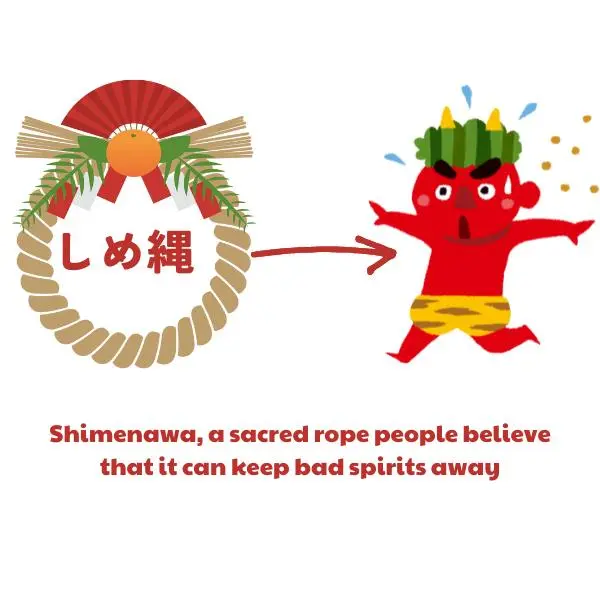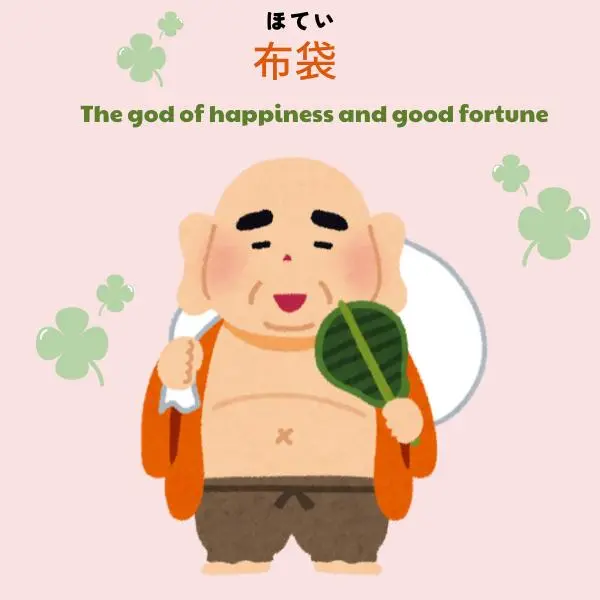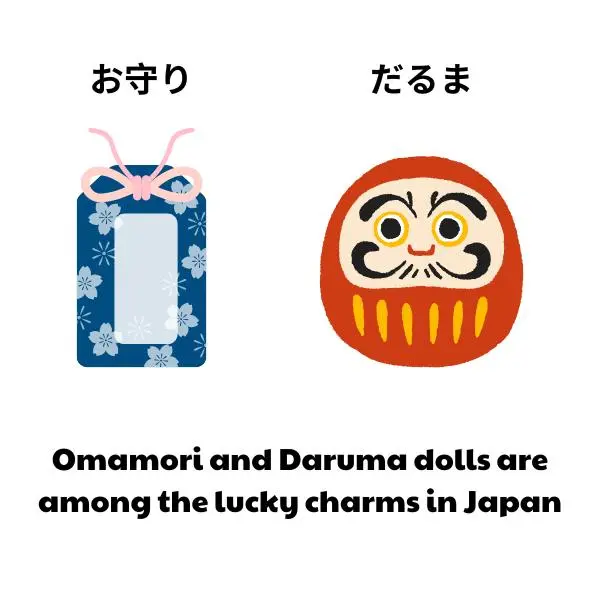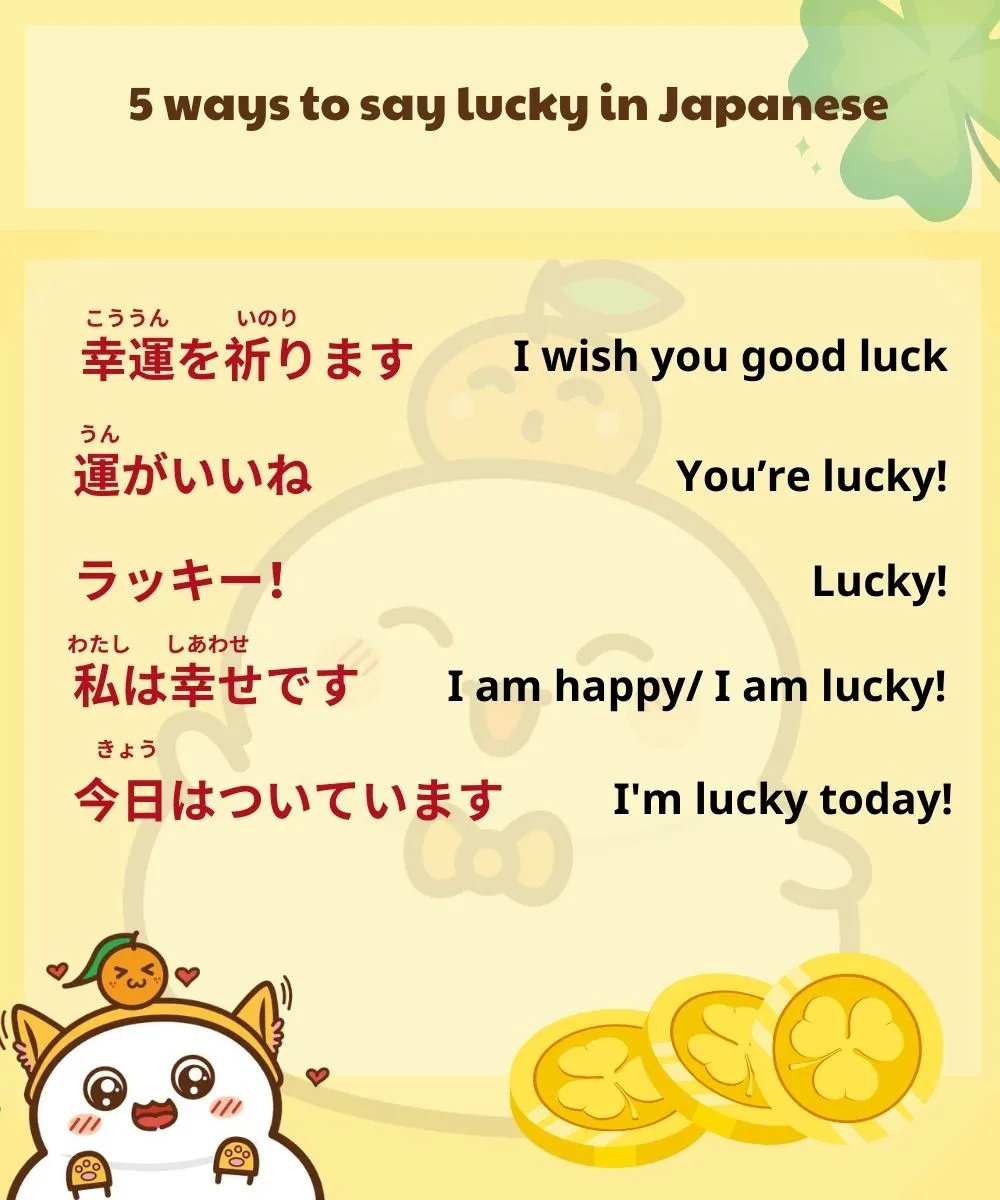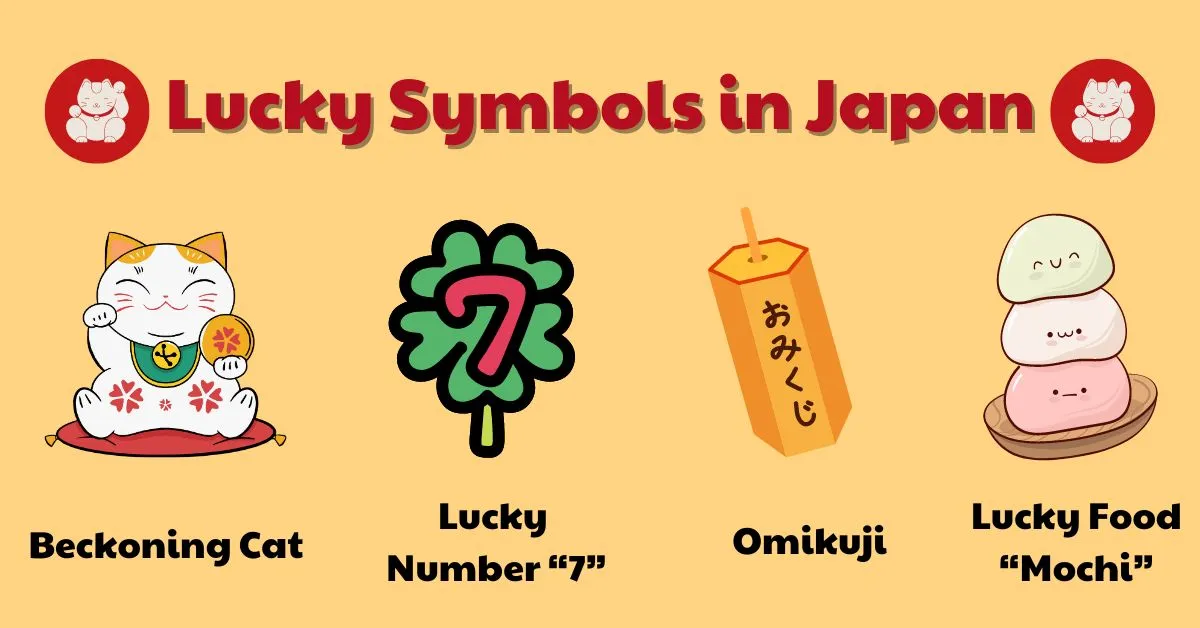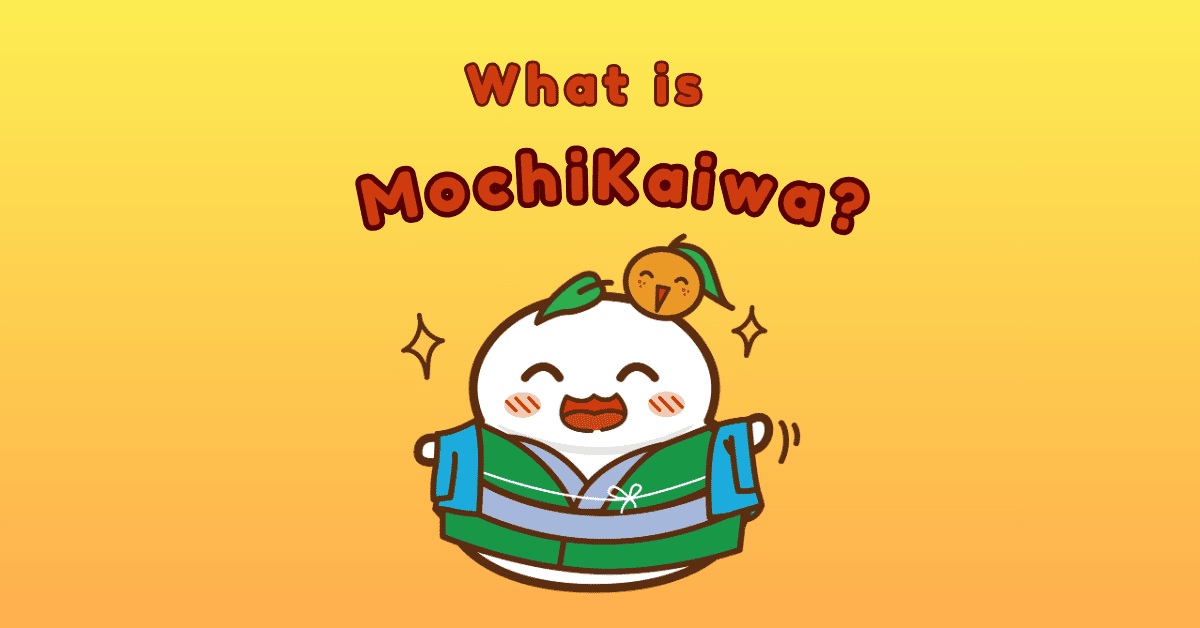Discover what “lucky in Japanese” means. Explore Shinto and Buddhist symbols, lucky charms, and various expressions of luck in the Japanese language.
- Lucky in Japanese history & culture
- 5 Ways to say Lucky in Japanese
- Tips to learn and retain Japanese vocabulary related to “Lucky”
- Lucky symbols and practices in Japan
- People also ask
- Conclusion
- FAQs

Lucky in Japanese history & culture
In Japan, luck and fortune are not just abstract concepts but integral parts of daily life, deeply woven into the fabric of history, culture, and religion. This belief system is deeply intertwined with Japan’s religious practices, particularly Shinto and Buddhism, creating a rich set of traditions and symbols that aim to bring good luck and avoid bad luck. Let’s explore how luck plays a big role in Japanese history and culture.
Lucky in Japanese: Shinto beliefs and Lucky symbols
Japan’s indigenous religion, Shinto strongly emphasizes Kami (gods or spirits) and the natural world. Many Shinto rituals are designed to invite good fortune and ward off evil. Lucky symbols in Japanese Shinto include the Shimenawa, people believe that this rope can keep bad spirits away. And Ema, small wooden plaques where people write their wishes and prayers on these plaques and hang them up at Shinto shrines, they believe that doing this can help their wishes come true.
Lucky in Japanese buddhism and fortune
Buddhism came to Japan in the 6th century. It brought many new ideas about luck and fortune. One important figure in Buddhism is Hotei. Hotei is the god of happiness and good fortune. He is often shown as a happy, fat monk carrying a big sack. People pray to Hotei to ask for good luck, especially when they want to be wealthy and happy.
Lucky in Japanese Lucky charms and amulets
In Japan, people use many lucky charms and amulets in their daily lives – Omamori. You can buy them at Shinto shrines and Buddhist temples. Omamori is believed to bring good luck in different areas of life, such as health, love, and success.
Another famous good luck charm is the Daruma doll. This doll is based on the founder of Zen Buddhism. People use the Daruma doll to set goals and achieve their dreams. When they set a goal, they color in one eye of the Daruma doll. When they achieve the goal, they color in the other eye to show that their wish has come true.
To expand your Japanese vocabulary, MochiKanji is an excellent tool. Start using it today to boost your learning!
5 Ways to say Lucky in Japanese
The Japanese language has several words and expressions to convey the concept of being lucky. Here are five common ways to say “lucky” in Japanese:
1. 幸運 (kou’un)
Kou’un is a simple and direct term that means “good luck” or “fortunate.” This word is made up of two kanji characters:
- 幸 (kou) means happiness.
- 運 (un) means luck or fate.
You can use Kou’un when you want to wish someone good luck or talk about a lucky event. For example, if someone is about to take an important exam, you can say, “幸運を祈ります” ( Kou’un o inorimasu) which means “I wish you good luck.”
2. 運がいい (Un ga ii)
Un ga ii translates to “good luck.” This phrase is for everyday conversations to describe someone lucky. It breaks down as follows:
- 運 (un) means luck.
- がいい (ga ii) means is good.
When someone experiences something fortunate, like winning a prize, you can say, “Un ga ii ne!” which means “You’re lucky!”
3. ラッキー (Rakkii)
Rakkii is the Japanese version of the English word “lucky.” It is often for younger people. You might hear it in casual conversations or see it in advertisements. For example, if someone finds a good deal while shopping, they might say, “Rakkii!” which means “Lucky!”
4. 幸せ (Shiawase)
Shiawase means happiness or good fortune. It describes a state of being happy, but it can also imply that someone is lucky. For example:
- 幸せな人 (shiawase na hito) means “a happy person” or “a lucky person.”
- If You have a great family and job, you might say, “Watashi wa shiawase desu,” meaning “I am happy” or “I am lucky.”
5. ついている (Tsuiteiru)
Tsuiteiru means “to be lucky” or “to have good luck.” This expression is common in daily conversations. Here is how you might use it:
- If you find money on the street, you might say, “Kyou wa tsuiteiru!” which means “I’m lucky today!”
- It describes a general feeling of having good luck in various situations.
Tips to learn and retain Japanese vocabulary related to “Lucky”
To learn Japanese vocabulary related to the theme of “lucky” quickly and remember it for a long time, you can follow these tips:
1. Use flashcards
- Apps like MochiKanji or Quizlet: These are popular tools that help create flashcards and review vocabulary effectively.
- Illustrations: Attach images to the vocabulary to enhance memory retention.
2. Link vocabulary to stories or contexts
- Create Short Stories: Use the vocabulary to create meaningful or humorous stories.
- Use in Real-life Contexts: For example, “luck” (幸運 – Kou’un) links to a story about a time you experienced good luck.
3. Practice through songs and movies
- Listen to Japanese Music or Watch Movies: Choose songs or movies with themes of luck to make vocabulary easier to remember.
- Learn through Lyrics and Dialogues: Analyze and memorize sentences with vocabulary related to luck.
4. Use language learning apps
- MochiKanji: MochiKanji is a Japanese learning app that help users learn kanji, the complex characters borrowed from Chinese. Kanji can be challenging due to their intricate shapes and meanings. However, MochiKanji makes learning easier through interactive exercises and the use of the spaced repetition system (SRS) for effective vocabulary review.
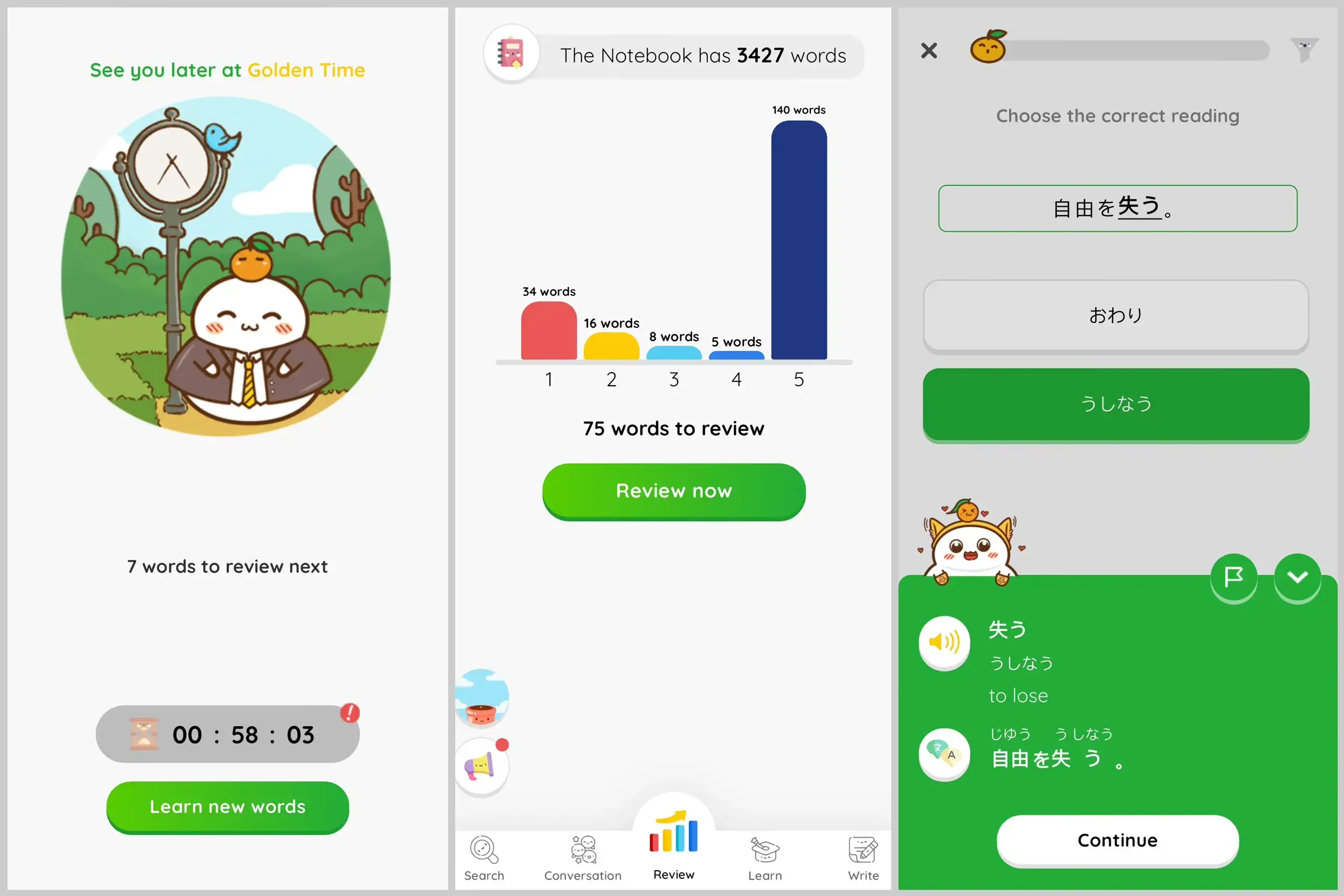
The SRS on MochiKanji helps you review vocabulary at specific intervals, optimizing long-term memory retention. MochiKanji automatically schedules the vocabulary you need to review based on your memory strength, enhancing learning efficiency. By using MochiKanji, you ensure that the words you learn are reviewed just as you are about to forget them, solidifying them in your long-term memory.
Combining these methods will help you learn Japanese vocabulary related to “lucky” efficiently and remember it for a long time. Good luck!
Lucky symbols and practices in Japan
Maneki-Neko (Beckoning Cat)
One of the most iconic symbols of luck in Japan is the Maneki-Neko or beckoning cat. This cat figurine, often seen at the entrance of shops and restaurants, is believed to bring good luck and attract customers. The raised paw is said to beckon wealth and prosperity.
Lucky numbers
In Japanese culture, the number 7 (七, shichi) is particularly lucky and is often associated with good fortune and happiness. Conversely, the number 4 (四, shi), which sounds like the word for death, is considered unlucky and is often avoided.
Omikuji (Fortune papers)
When visiting a Shinto shrine or Buddhist temple, many people draw omikuji, which are fortune-telling paper slips. These slips can contain predictions ranging from great fortune to bad luck. If the prediction is bad, it is customary to tie the omikuji to a tree or a special rack at the shrine to nullify the bad luck.
Mochi: A Lucky food
Mochi, a type of rice cake, is often associated with luck and good fortune in Japanese culture. It is traditionally eaten during New Year celebrations to bring good luck for the coming year.
People also ask
Why is the beckoning cat Lucky in Japan?
The Maneki-Neko is believed to bring good luck and prosperity because of its beckoning paw, which is said to attract wealth and customers. The origins of this belief are rooted in various legends, one of which tells the story of a cat that saved a feudal lord by beckoning him to safety.
What are some common Lucky charms in Japan?
Common lucky charms in Japan include the Omamori (protective amulets), Daruma dolls (goal-setting talismans), and Maneki-neko (beckoning cat figurines). Each charm is believed to bring good luck in different aspects of life, such as health, love, and business.
How do Japanese people celebrate Good Luck?
Japanese people celebrate good luck through various rituals and festivals. For example, during the New Year, they eat mochi for good fortune and visit shrines to draw omikuji (fortune slips). Festivals like Tanabata also involve rituals to attract good luck and happiness.
CONCLUSION
In conclusion, lucky in Japanese culture is rich and diverse, deeply rooted in history, religion, and daily life. From language expressions to symbols and practices, the Japanese have numerous ways to attract and celebrate good fortune. Whether you are interested in language, and culture, or simply want to bring some extra luck into your life, exploring the Japanese approach to luck offers fascinating insights and meaningful traditions.
By understanding and appreciating these aspects of Japanese culture, we can gain deeper insights into how the Japanese people view and embrace the concept of luck. Whether you’re a language enthusiast, a cultural explorer, or someone looking to bring a little extra luck into your life, the Japanese approach to fortune offers a fascinating and enriching perspective.
FAQs
What is lucky in Japanese?
The word for “lucky” in Japanese is “運が良い” (un ga yoi) or “ラッキー” (rakkī).
What Japanese name means lucky?
The name “幸子” (Sachiko) means “happy child” or “lucky child.” The character “幸” (sachi) means “happiness” or “luck.”
How do you say good luck in Japanese?
To say “good luck” in Japanese, you can say “頑張って” (ganbatte), which means “do your best” or “幸運を祈ります” (kōun o inorimasu), which means “I wish you good luck.”

